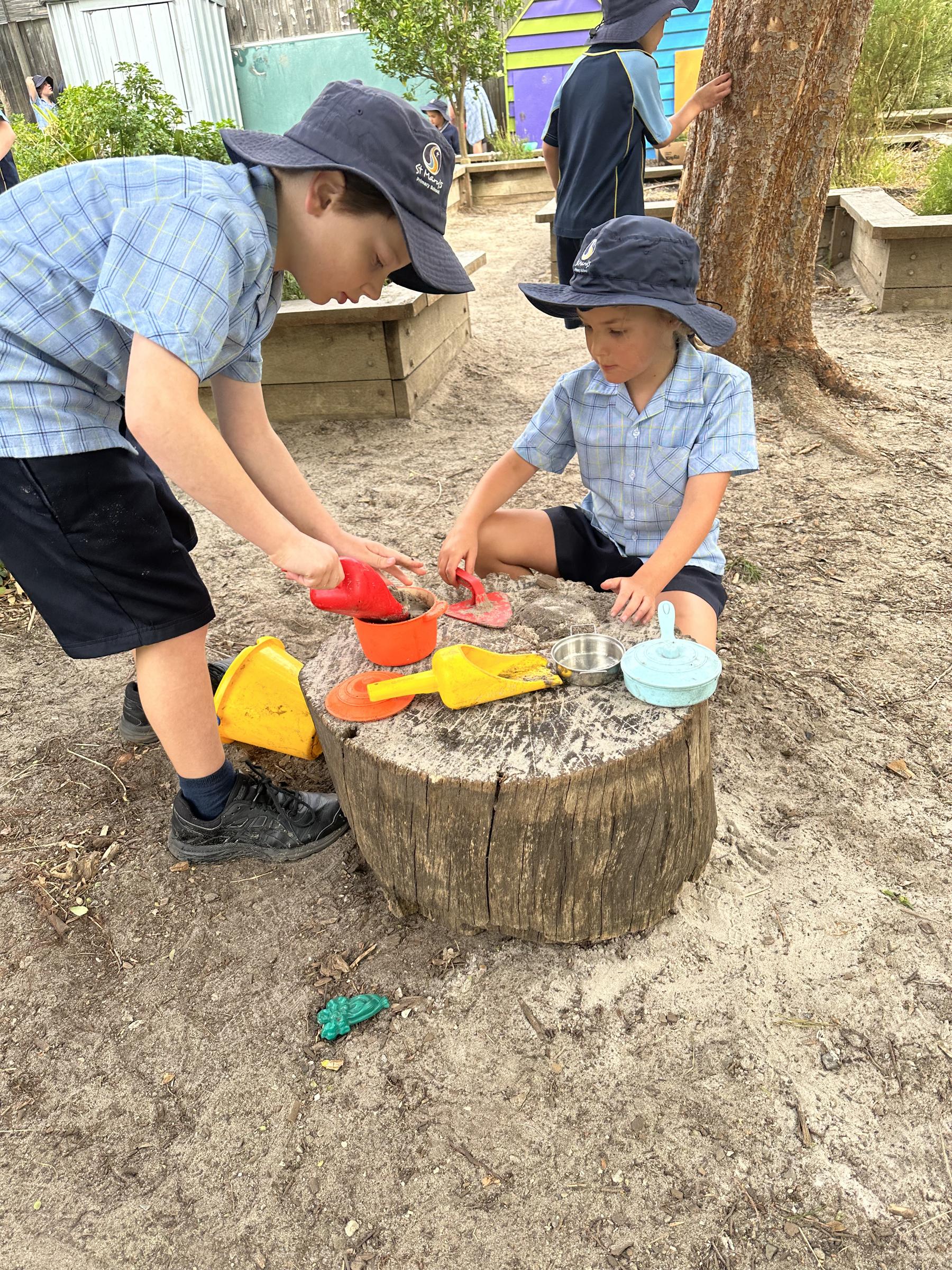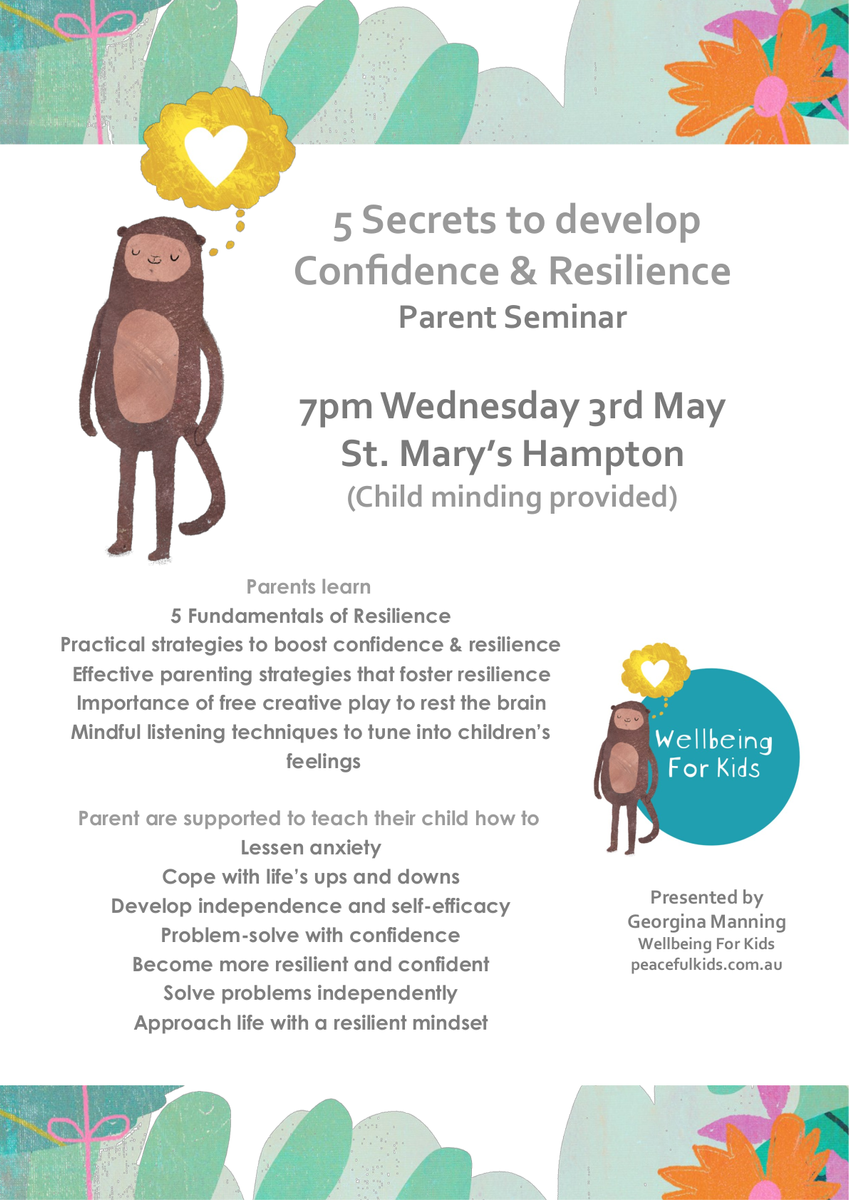Student Wellbeing

Wellbeing Parent Night - '5 Secrets to Building Confidence and Resilience'
Building children's confidence and resilience and supporting them in developing skills to manage emotions, problem solve and manage anxiety is a priority at both home and school. This has increasingly become the case coming out of three years of COVID and lockdowns.
Next Wednesday we are hosting a Parent Night with a focus on Student Wellbeing: Five Secrets to Develop Confidence and Resilience. The night will be presented by Georgina Manning, director of Wellbeing for Kids. Georgina is the creator of the Peaceful Kids program that we provide here at St Mary's facilitated by Mrs M to support students' social-emotional learning.
Whether you have attended this seminar before as a Prep parent or if this is your first time, I highly recommend you attend the night, at which Georgina will provide information and strategies you can use at home around:
- The five fundamentals of resilience
- Practical strategies to boost confidence and resilience
- Effective parenting strategies that foster resilience
- Importance of free creative play to rest the brain
- Mindful listening techniques to tune into children's feelings.
Please see the attached flyer for further information and indicate your attendance via the link: https://forms.gle/wZ2DKL2zwXw7nBRbA
What is resilience? Resilience is knowing how to stay calm, being able to stop yourself from getting extremely angry, down or worried when something bad happens. It also means being able to control your behaviour when you are upset so you can bounce back from difficulty.
Teaching your child to be resilient
A vital element of teaching children to build resilience is teaching children that what they THINK affects the way they FEEL. Usually it is not what happens that makes us feel negative emotions, it’s the perception and understanding around the situation that creates our feelings. Two children in the exact same situation can perceive a situation differently and therefore one crumbles and gets down and the other is able to control her emotions and bounce back from a minor setback. This is most often because of the child’s thinking skills and habits.
Habits of Mind that lead to poor emotional resilience:
There are a range of thinking habits that don’t help children to be resilient. If we can identify these unhelpful habits, then it’s easier to help our child think about a situation in a more healthy way. These are some common negative habits:
- Self-Downing – means thinking that I am useless or a total failure when I have been rejected or have not achieved a good result.
- Needing to be perfect – means thinking that I have to be successful or perfect in everything important I do
- I Can’t Do It – means thinking that, when I have not been successful at something important, I am not good at anything and never will be
- I Can’t Be Bothered – means thinking that life should always be fun and exciting and that I can’t stand it when things are frustrating or boring
- Being Intolerant of Others – means thinking that people should always treat me fairly, considerately, and the way I want and if they don’t then I will get really angry and frustrated
If you would like to find out more about building resilience in children come to our Parent Seminar on the 5 Secrets to build confidence and resilience
7pm next Wednesday May 3rd in the hall.
Nathan Eddy
Deputy Principal & Student Wellbeing Leader
neddy@smhampton.catholic.edu.au

